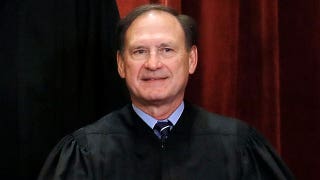A friend once messaged me to mention an encounter with an angel. The way he started his note is very telling: “Would you think your old friend crazy. . . ?” Though we agree on many things, there was a basic and curious assumption that while one of us might believe in angels, the other might regard such belief as loony.
It turns out that he had little cause for worry, as I do believe in angels. In fact, some 77 percent of Americans do, according to an AP-GfK poll late last year.
Belief in angels is actually quite widespread in certain parts of the world, though far from universal. While Italians and Croatians are on par with Americans, for instance, no more than a third of Danes believe in angels—somewhere between 25 and 33 percent, according to the European Values Study. The English are similarly low; just 36 percent believe in angels, according to Gallup.
These numbers seem to roughly correlate to belief in God. Americans, Italians, and Croatians overwhelmingly profess belief in God, while less than half of Danes and barely half of Brits do so.
We are looking here at a cultural dividing line. On the one side live those who believe in the divine, in the spiritual. On the other live those who do not. The former are obviously more likely to believe in angels, and the latter—materialists and secularists—definitely not.
That the line exists is unremarkable, as is the disbelief of the secularists. What I find most intriguing, going back to my friend’s concern, are the Christians who find reason to disbelieve. The surveys point to some of this skepticism; people who profess belief in God do not necessarily believe in angels.
There are many reasons for this, but I’m struck by two primary reasons. The first is that materialism has inoculated our entire culture against the spiritual, and even professed believers are more affected by this than most of us realize.
Stephen Freeman, an Orthodox priest and popular blogger, often speaks of the two-story universe to explain things. Since the Enlightenment we have a tendency to divide the spiritual and the material and cordon them off in separate domains.
By consigning the spiritual to the second story, in time we forget it’s there. Like a trinket in the attic, it has little bearing on our daily lives. Angels become an afterthought in a two-story universe—if they’re ever considered at all.
The second reason is that the fear of superstition leaves many believers uncomfortable with angels. Any serious focus on angels smacks many of us as, variously weird, naïve, and possibly even idolatrous. Discounting angels serves as a defense mechanism against the excesses of the New Age movement or folk piety run amuck.
Both of these two reasons are problematic. The first tends to demote God to a theoretical concept rather than an active presence in our world. And the second tends to make him a solitary friend in a narrow relationship. Both tend toward a sort of reductionism, tightening the bounds of spiritual experience to an ever-shrinking area. Angels are a casualty in both scenarios.
Whatever these two extremes, healthy Christian spirituality walks a middle path populated by angels, and the best place to become acquainted with this balanced and helpful way is by looking at the early church and how they understood the spiritual world—something I attempt in my book "Lifted by Angels."
Augustine famously envisioned the created order split in two camps, one of light and the other of darkness, one of love and devotion to God and the other of pride and alienation from the Creator. He termed these camps “the city of God” and “the city of the world.”
Note that there are just two cities in this scheme. Augustine said that we should not “suppose four cities, two of angels and two of men.” Rather, “[w]e may speak of two cities, or communities, one consisting of the good, angels as well as men, and the other of the evil.”
Unlike the secularists who disbelieve in angels, and Christians who keep them at arm’s length, Augustine presents us a picture of immediacy and proximity; there’s no second story to separate us. In his view, heaven isn’t far off. Its borders cross our very own, and we share our city with angels. No surprise then that Augustine elsewhere suggests we consider them our neighbors.
Traditional Christian spirituality assumes the presence of angels. While we should eschew pop culture notions and take pains to ensure that our understanding squares with the ancient and honored view held in the church since its beginning, we should nonetheless embrace the belief.
Angels, as Augustine and all the theologians of the early church recognized, share the world with us.








































